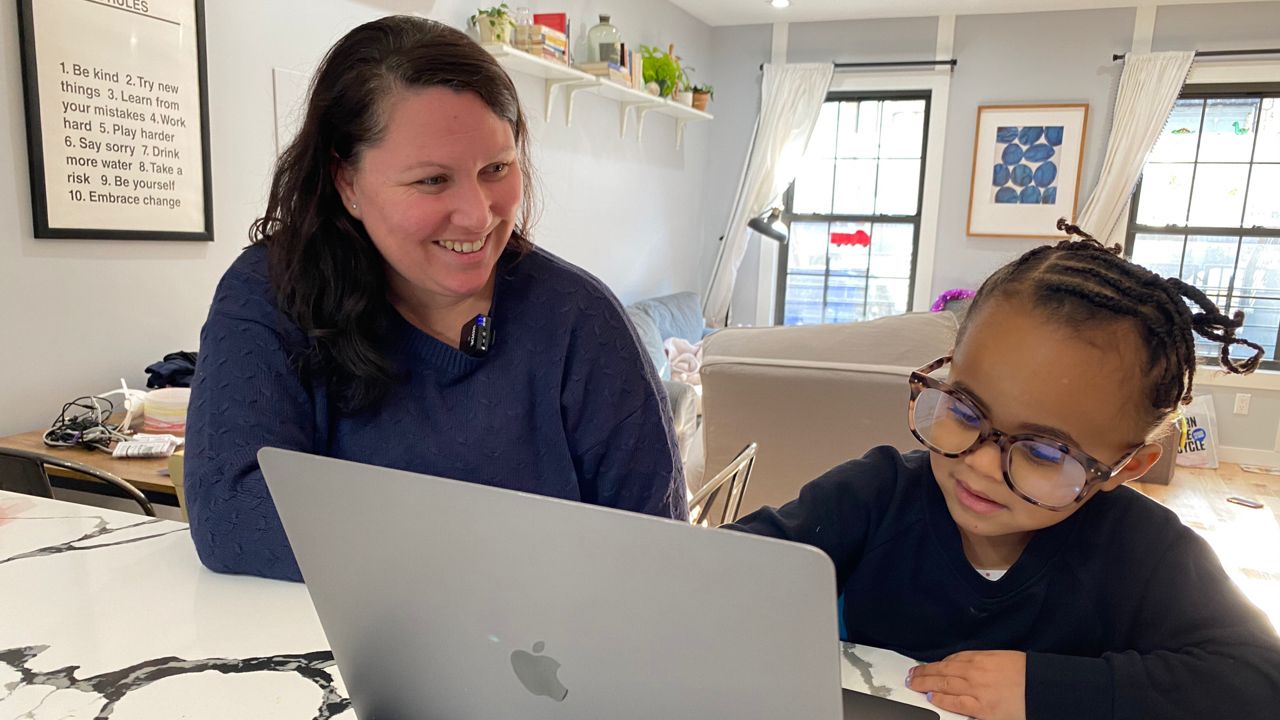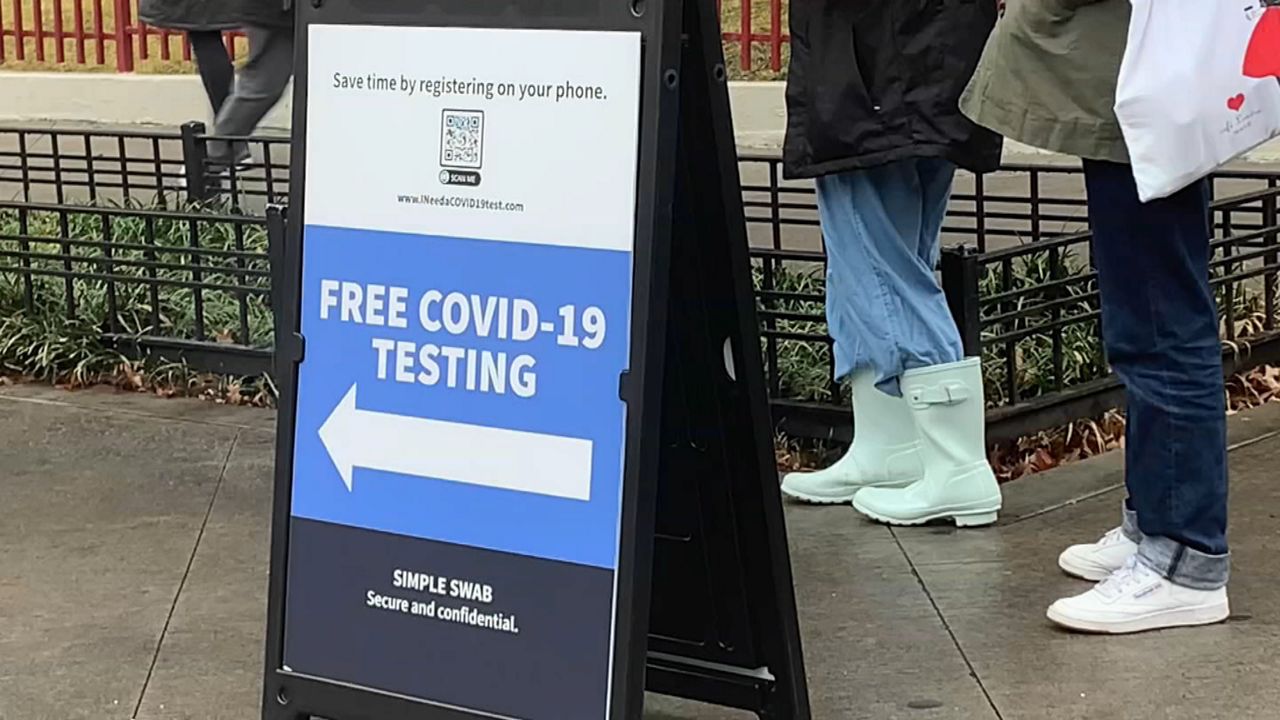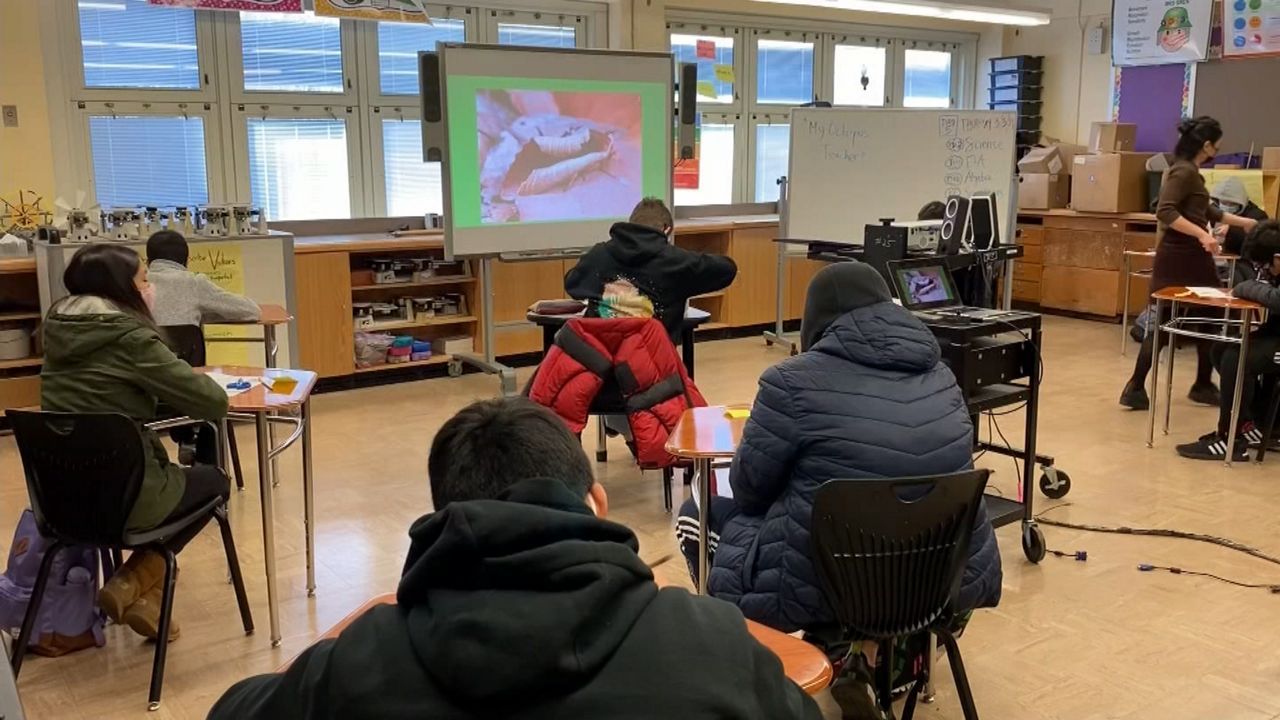NEW YORK — For 15 years, Iolani Grullon entered classrooms in September, excited for the academic year ahead.
This week, all she could think about was what working in a school during a pandemic might mean for her 13-year-old daughter, Chloe, a heart transplant recipient.
"She had her transplant when she was 15 months old. She’s doing very, very well right now, but she is immunosuppressed and she has a history of pneumonia as well. This is something that would be very, very dangerous for my daughter if I brought it home," Grullon said.
Grullon has taken pains to keep Chloe safe. They strictly limit visitors to their home, and Chloe and her twin sister will learn remotely this year. But Grullon had to return to P.S. 48 in Washington Heights to teach a dual language kindergarten class after being denied a medical accommodation to work remotely.
"I was denied right away, the reason being I’m not the one at risk. I’ve called my union, I've participated in all those town halls, I’ve called the DOE [Department of Education] itself, I’ve done everything,” she said.
While the DOE has granted nearly 16,000 teachers reasonable accommodations because of their own medical problems, the teachers union says no one has been granted permission to work remotely because they live with someone who is immunocompromised. The union is trying to negotiate what it calls a “humane consideration” for them.
"There is no legal way for us to force this to happen. A medical accommodation is covered under federal law and it’s quite clear what it -- it can only be given to the person with the medical condition. But I feel for those people,” union president Michael Mulgrew said.
As a single mom, Grullon can't quarantine from her own children, nor can she afford to take a leave of absence or retire. When she returned to P.S. 48 this week, she walked one and a half miles to and from the school when the weather allowed, to reduce her chance of getting sick from the coronavirus.
She says she's a nervous wreck already, and students don't even return to class until September 21.
"I’ll never forget when my daughter, Chloe, was listed to wait for a heart. It was very, very, nerve-wracking. that situation. And this is causing me more anxiety, it really is,” Grullon said. “She’s in such good health right now. She’s doing so well. And my job is going to put her at risk. It’s just unfathomable."
An education department spokeswoman urged those with specific concerns to speak to their supervisors or to explore options for taking leaves.
“We are working with our educators to ensure they are safe and supported each day, while also making sure our blended learning students have in-person instruction. We empathize with our staff in difficult circumstances and we are putting health and safety first in all of our buildings while also evaluating reasonable accommodations consistently with the law,” spokeswoman Danielle Filson said.









